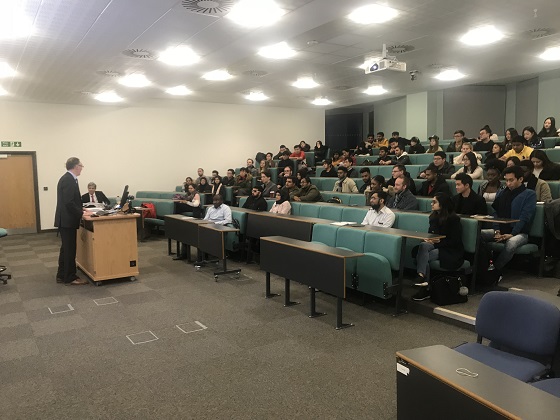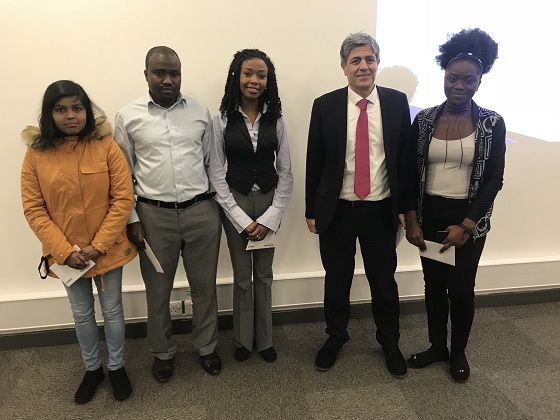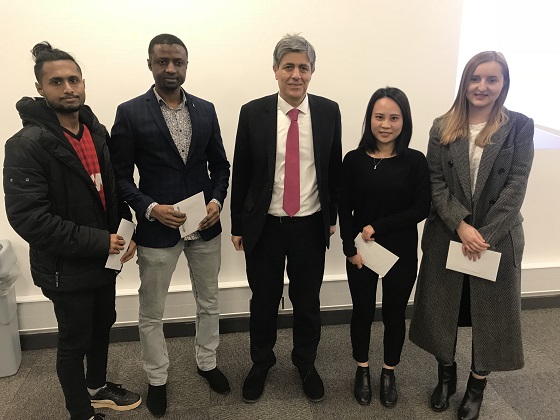Hundreds of students have put their employability and enterprise skills to the test to give them a head start in their careers.
The postgraduate students from Leicester Castle Business School at De Montfort University Leicester (DMU) went head-to-head in a live business simulation to manage a real-life industry project.

A total of 310 students spent about four months in the highly competitive environment of creating a profitable car manufacturing business.
The ‘Driving the Learning Experience’ project combined students’ theoretical and practical knowledge through a series of all-important business decisions.
As they designed cars to sell in the European market, they experienced how profit is made, how cash flow is affected and how employees can influence the financial success of a business.
Students from MSc International Business, Global MBA, MSc Accounting and Finance and MSc Project Management made up a total of 54 competing teams. MSc Business & International students from DMU’s partner institution, Niels Brock Business School in Copenhagen, also took part.

Phil Wilson, Associate Professor of Accounting and Finance, said the high-tech software project taught students how to assess and adapt business practices to improve performance and profitability.
He said: “Students were looking at strategy, production, market and finance and now have experience of managing a complex project. They had to consider absolutely everything and justify each decision.
“They started from scratch, designing everything about the cars, from body shape to engine. They then looked at advertising and marketing, how many factories they needed, how much to pay employees and suppliers, and whether to trade in shares.
“Students were using the exact competencies employers are looking for, such as financial awareness, planning and organising, influencing and analytical skills and a results-driven approach.
“This will help students in their future careers as they all learned so many transferable skills that can have a lasting impact on their lives.”

The teams of up to seven students purposely included a mix of cultures and those from different courses so everyone was ‘complete strangers at the start.’ The teams had to meet in their own time and adapt to each other’s different opinions and work practices.
Each team had to submit a strategic plan and final report, then give a presentation as part of the annual business challenge.
Teams were judged on a range of criteria, including the return on capital, overall market share, productivity index, gross profit margin, earnings per share and market value of equity.
Professor Wilson said: “Students work completely on their own. They discover the difference between group work and teamwork, as well as how to deal with issues such as time management, problem solving and any internal conflicts.
“This is just what it is like in the workplace. Students will soon be working in the industry, while dealing with other factors at the same time and benchmarking against competitors.”
RELATED NEWS
Prizes galore for high-achieving Business and Law graduates
International students look forward to #DMUworks placements
‘Valuable placements’ help MBA student secure role with Big Four accounting firm
Professor Christos Kalantaridis, Deputy Dean of Business and Law, presented the winning students with gift vouchers as prizes.
He said: “The business simulation project is really important as it is so useful to students when they go out to the real world of work.
“They have learned many of the skills needed to work as part of a team and I’m sure students will reflect on their practice and use it to their advantage in future interview situations.”
Posted on Monday 19 February 2018